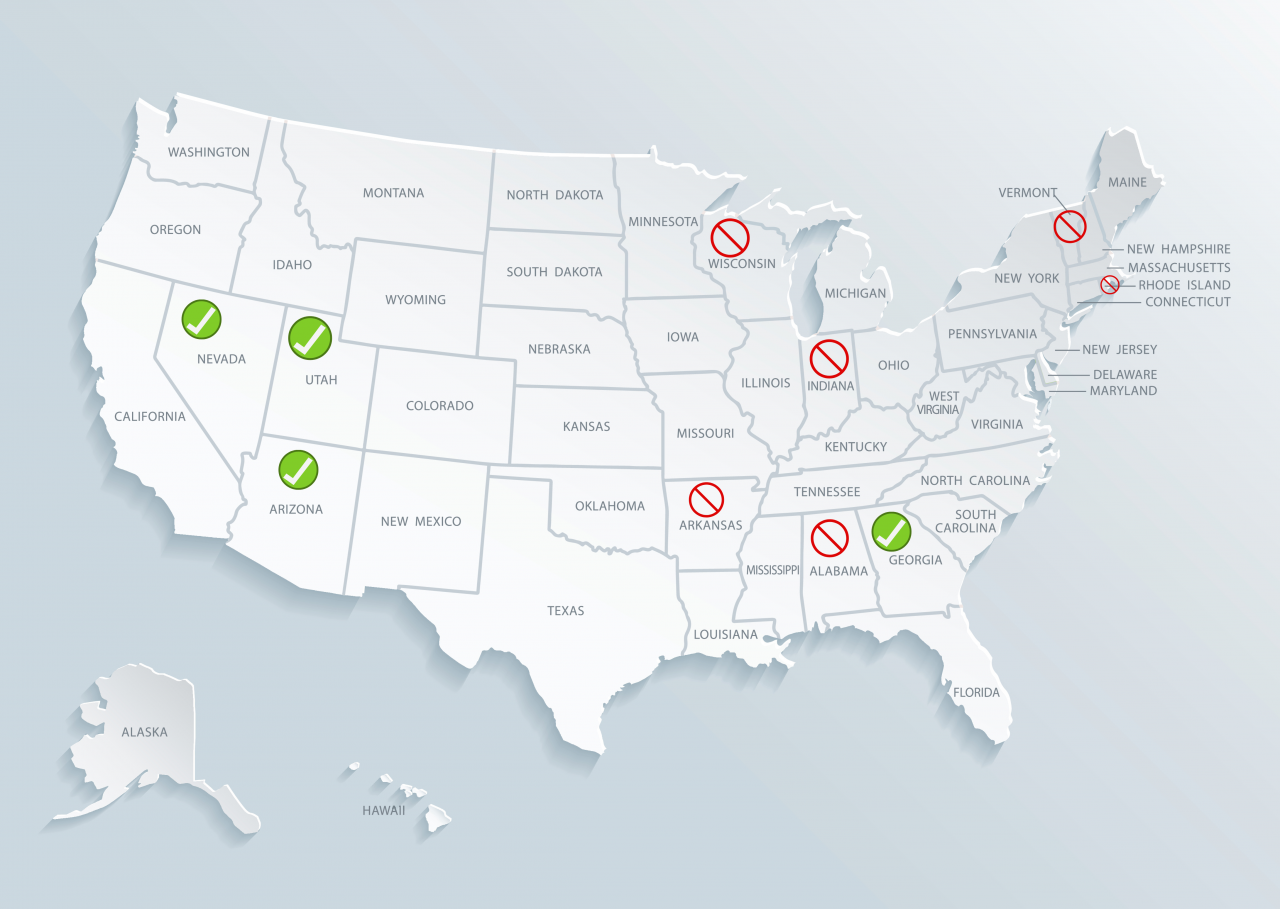Reviewed By:
You've seen it online, in shops, and even farmers' markets, but is kratom legal? Is it safe? Read this guide to get the facts.
Table Of Contents
You can find kratom online, in smoke shops, in “health” stores and even in farmers’ markets throughout the United States. With such widespread availability, you might have questioned whether the drug is safe, or even legal. Medical experts can answer the first question: as an addictive substance, the drug carries risks that outweigh the benefits for most people. But is kratom legal? That depends on where you live.
This guide will help you understand how kratom affects you, whether or not it’s legal near you, and how to get help if you become addicted.
What Exactly Is Kratom?
Kratom, or Mitragyna Speciosa, is a psychoactive substance made from leaves that grow in Indonesia, Malaysia, Papua New Guinea, and Thailand. Users typically chew the leaves, ingest capsules filled with ground leaf powder, or make tea to feel the effects. In Southeast Asia, people have used the matcha-green substance as a pain reliever and mood-booster since at least the 19th century.
Although marketed today as having healing powers, or even as an alternative to opioids, most medical experts agree that the health risks of kratom make it unsafe.
Moreover, the active ingredient in kratom varies widely by plant, making its effects unpredictable. This leads to a risk of overdose and serious side-effects, including seizures, hallucinations, chills, vomiting, liver damage or even death. For these reasons, kratom has made our list of drugs to watch in 2021.
However, kratom has many advocates who have actively fought for its legality, even if it brings increased regulation. The biggest movement, called the Kratom Consumer Protection Act (KCPA), would protect the legality of kratom in a particular state while allowing regulators to set requirements, such as a minimum age. Some states have enacted the act to protect consumers against unregulated products, which might include synthetic kratom, fentanyl, or other dangerous ingredients. Four states have currently passed KCPA bills, while others, such as Oregon, have taken steps toward a more legal, but regulated states for kratom.
Is Kratom Legal Near Me?

In the United States, kratom is not federally regulated. This means that no government body checks or guarantees the quality and safety of kratom products purchased in the U.S., including online. Because of the drug’s harmful effects and addictive properties, the Drug Enforcement Agency (DEA) has considered labeling kratom a controlled substance.
Although kratom is technically legal at the federal level, some states and municipalities have chosen to ban the substance, making it illegal to sell, possess, grow, or use it. Others have imposed age restrictions. Below is an overview of the legality of kratom in every U.S. state.
Kratom is illegal to buy, sell, possess or use:
- Alabama
- Arkansas
- Indiana
- Rhode Island
- Vermont
- Wisconsin
Kratom is legal, but may be regulated:
- Alaska
- Arizona – KCPA passed
- California – Outside San Diego, which banned it, kratom is legal in California
- Colorado – Outside Denver, where it’s considered illegal for human consumption, kratom is legal in Colorado
- Connecticut
- Delaware
- Florida – Aside from being banned in Sarasota Country, kratom is legal in Florida
- Georgia – KCPA passed
- Hawaii
- Idaho
- Illinois – Outside the city of Jerseyville, kratom is legal in Illinois for those over the age of 18
- Iowa
- Kansas
- Kentucky
- Louisiana
- Maine
- Maryland
- Massachusetts
- Michigan
- Minnesota
- Mississippi – Outside Union County, which has banned the substance, kratom is legal to use in Mississippi
- Missouri
- Montana
- Nebraska
- Nevada – KCPA passed
- New Hampshire – Kratom is legal for those over the age of 18
- New Jersey
- New Mexico
- New York
- North Carolina
- North Dakota
- Ohio
- Oklahoma
- Oregon
- Pennsylvania
- South Carolina
- South Dakota
- Tennessee – Kratom is legal for those over the age of 21
- Texas
- Utah – KCPA passed
- Virginia
- Washington
- West Virginia
- Wyoming
Is Kratom Legal in Other Countries?
Outside of the United States, kratom laws also vary. In the following countries, kratom is illegal:
- Australia
- Denmark
- Finland
- Israel
- Japan
- Latvia
- Lithuania
- Myanmar
- Malaysia
- New Zealand (unless the person has a prescription from a doctor)
- Poland
- Romania
- Russia
- Singapore
- South Korea
- Sweden
- Thailand
- Vietnam
In countries like Ireland, Italy, and the United Kingdom, the rules may vary from one city to the next. It’s also important to note that the status of kratom legality isn’t widely known for some countries. For example, it isn’t clear whether it is legal in many African nations and China.
Additionally, Thailand has recently reconsidered the status of some illegal substances, so kratom might not remain illegal. However, as the drug becomes more widely known, countries, counties, and cities that don’t currently ban kratom may choose to do so at any point.
Have questions about opioid addiction?
Call us at 855-430-9426 to speak with a recovery specialist.
Why Isn’t Kratom Legal Everywhere?
Despite medicinal use in some areas of the world, kratom is widely recognized as an addictive drug. The Food and Drug Administration (FDA) has found no evidence that kratom has any therapeutic benefits, further damaging the substance’s credibility as a medicinal product.
As noted, kratom also has a wide range of potential side effects. Along with nausea, vomiting, chills, sweating, itching, and loss of appetite, more serious problems can occur, such as hallucinations or delusions. With long-term use, kratom can cause extreme weight loss, skin darkening, frequent need to urinate, constipation, muscle pain, and liver damage.
In some cases, difficulty breathing, seizures, and even coma has occurred. When combined with other substances, the risk of overdose is high.
Based on these facts, many states and cities have decided to ban kratom. By making it illegal, they hope to protect their residents from these negative health effects and possible addiction.
Getting Help for Kratom Addiction
Although kratom is sometimes touted as a pathway to overcoming opioid addiction, kratom itself is highly addictive. Kratom addiction can occur within six months, leading to symptoms similar to opioid withdrawal, including intense cravings, nausea, vomiting and muscle aches.
If you recognize the signs of kratom withdrawal, it’s important to work with a doctor who specializes in addiction. Kratom withdrawal symptoms are difficult to endure alone. A physician can guide you through an assisted detox to overcome physical dependence so you can focus on tackling the underlying issues of your kratom use, such as opioid addiction, chronic pain or depression.
Often, full kratom addiction treatment programs also include behavioral or family therapy. This allows you to explore the reasons behind your addiction and acquire tools to manage situations that lead to drug use. Additionally, you’ll receive aftercare guidance, making it easier to assimilate and rebuild a healthy life while avoiding relapse.
Ultimately, kratom addiction can be serious. As a result, it’s important to work with a professional throughout the recovery process. Call the number below or ask a question in the chat box to start your journey toward recovery.
News About Kratom Legality
The landscape of kratom legality changes frequently. While kratom advocates push for greater access in more states, consumer watch groups campaign for more restrictions. Here are some of the latest changes to kratom’s legal status:
Oregon Adds Restrictions
Early in 2020, Oregon added a series of restrictions over kratom, including a minimum age, 21, and a law that requires anyone manufacturing or selling the drug to disclose kratom as an ingredient. Oregon is one of 19 states actively targeted by the Kratom Consumer Protection Act. Read more.
Utah Keeps Kratom Legal
In an effort to prevent overdoses and other dangers that can result from impure kratom, Utah passed legislation that has kept kratom legal with regulations. Lawmakers have restricted who can sell it, how it’s manufactured, how it’s labeled, and who can buy it. Red more.
Kratom Stays Unregulated in Mississippi
Although a few local governments in Mississippi have outlawed kratom, the state killed a bill put forth in March 2020 that would have either banned or regulated it. The move makes Mississippi one of few in the South to take no position on the drug. Neighboring Alabama and Arkansas have banned it, while Georgia has passed regulations. Read more.
Have questions about addiction?
Chat with one of our recovery specialists now.


